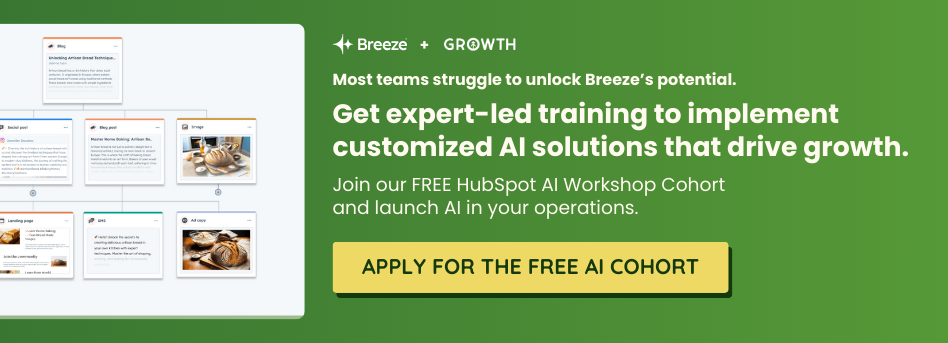Why Soft Skills Matter More Than Ever in the Age of AI
On this page
AI is everywhere now, from automating workflows to crafting content—and for those who know me (and those who don’t), you know I’m a huge AI evangelist. I’m all about it. I love everything AI can do for businesses and how it’s reshaping industries. But after chatting with Dr. Todd Cherner on our latest That’s Growth Ops podcast episode, I started thinking differently about how we’re using it.
Todd brought up some great points about how, while AI is an incredible tool, it still can’t replace the human side of things. Empathy, creativity, adaptability—these are the soft skills that really matter when it comes to building teams, leading projects, or communicating effectively. And here’s the kicker—these skills are becoming more valuable, not less, as AI continues to grow.
Think about it. You can train a machine to analyze data or generate content. But can it understand a client’s frustration? Can it navigate office politics or build trust with a team? Nah, that’s where we still have the upper hand. In a world run by algorithms, being human is your secret weapon.
The Rise of AI and Automation: What’s Changing?
AI is transforming industries by taking over repetitive and technical tasks. It’s efficient, fast, and reshaping how we work. But there’s one thing AI can’t do—replace human skills like creativity or empathy.
AI can crank out blog posts, analyze data, and even manage SEO. But it can’t connect emotionally with a customer or navigate tricky office dynamics. Machines simply don’t have the emotional intelligence that’s required for leadership or collaboration.
When it comes to fields like education and leadership, human-centered skills are essential. Todd explained how soft skills like being coachable and innovative drive success. These qualities allow people to think creatively, solve problems, and lead teams effectively.
AI might give you the data, but it’s the human touch that makes the difference. Todd’s “be cool” rule in his classroom proves that soft skills create stronger leaders. And leadership is something that no machine can truly replicate.
What Are Soft Skills and Why Do They Matter Now?
Soft skills are the traits that help people work well together. We’re talking about communication, adaptability, emotional intelligence, and creativity. In today’s AI-heavy world, these skills will matter more than ever.
AI can be trained to do tasks, but it lacks human connection. People can "sniff out phoniness" fast. Soft skills like empathy and authenticity can’t be faked by a machine.
Being coachable, innovative, and gritty are the qualities we should prioritize. These traits are essential for navigating complex problems that AI can’t solve. They help build trust, solve real-world problems, and lead teams to success.
Emotional intelligence is the glue that holds successful teams together. While AI can process facts and data at lightning speed, it lacks the ability to read a room, sense frustration, or respond with empathy.
That’s why, in an increasingly automated world, emotional intelligence isn’t just a nice-to-have—it’s the game-changer that separates good leaders from great ones.
The Role of Soft Skills in Leadership and Innovation
Look, leadership isn’t about having the best ideas or the most knowledge. It’s about how you work with people, keep calm when things get tough, and actually inspire your team.
Those soft skills—like emotional intelligence and patience—are the real game-changers. In a world where AI can crunch numbers and spit out data, it’s still the human touch that builds trust and gets the best out of people.
When it comes to innovation, the same rule applies. Sure, AI can help streamline processes, but it can’t come up with that big, bold idea that changes the game. That spark comes from humans who know how to collaborate, brainstorm, and problem-solve.
Creativity thrives in spaces where people connect, challenge each other, and think outside the box. Bottom line: soft skills aren’t just nice to have—they’re essential if you want to lead and innovate.
Why Emotional Intelligence Beats AI in Business and Education
Here’s the thing: AI can analyze data all day long, but it can’t deal with people. Emotional intelligence (EQ) is where humans really shine. It’s about reading the room, knowing when someone’s frustrated, and handling conflicts in a way that builds relationships.
In business, having high EQ means you can navigate tricky situations—whether it's calming down an upset client or managing team dynamics. People don’t just want solutions; they want to feel understood. And that’s where AI falls flat. It doesn’t "get" emotions like humans do, which makes EQ a huge asset in any workplace.
Same goes for education. Teaching, mentoring, or guiding people takes a whole lot more than knowledge. You need that human touch to connect with students or team members, especially when they’re struggling.
AI can provide tools, but it can’t inspire or motivate like a real person who’s tuned in emotionally. That’s why EQ isn’t just an edge—it’s a must-have in today’s AI-driven world.
How Soft Skills Complement AI for the Best Results
Here’s the thing—AI is a powerful tool, but it’s just that: a tool. The real magic happens when you combine AI’s efficiency with human soft skills. Think of it like this: AI can help you process mountains of data or automate boring tasks, but it takes human intuition and creativity to turn that into something valuable.
Knowing how to prompt AI correctly is one thing, but having the emotional intelligence to understand why you need certain outcomes is what really drives results. AI might give you the facts, but it’s the human insight that interprets them and creates solutions that resonate with people. This balance between hard tech skills and soft skills is where the real wins happen.
In the workplace, this means we shouldn’t rely on AI to do it all. Instead, we should focus on using it to handle the heavy lifting while humans bring the empathy, communication, and strategic thinking that only we can offer. When you mix those two worlds, you’re unstoppable—AI becomes the assist, and human soft skills score the goal.
Soft Skills: The Secret Weapon for Career Success in the AI Era
Here’s the truth: AI is only getting smarter, but soft skills are what will keep you ahead. As machines take over more technical tasks, the people who excel will be the ones who master emotional intelligence, creativity, and adaptability. These aren’t just nice extras—they’re the difference-makers.
Think about it: anyone can learn to use AI tools, but not everyone can manage a team, solve problems creatively, or build strong relationships. Those who can do both? They’re the ones who will thrive. Soft skills are what allow you to navigate a world that’s constantly changing, especially when tech evolves faster than ever.
In the end, companies don’t just want people who can use AI—they want people who can use it well while bringing that irreplaceable human touch. The future isn’t just about tech skills; it’s about combining them with soft skills to become the kind of leader, innovator, or teammate that AI can’t replace.
Embrace Soft Skills to Thrive in the AI Era
Soft skills like emotional intelligence, creativity, and adaptability are your edge in an AI-driven world. They help you stand out where AI simply can’t compete.
As AI continues to transform industries, remember that mastering both tech tools and human-centered skills is the winning combo. It’s the leaders and innovators who can balance both that will excel in this new landscape.
So, focus on sharpening your soft skills while leveraging AI as a tool—because in the end, it’s that balance that will set you apart. Ready to take the lead? Start by owning what makes you human.
To help you implement AI in a way that complements your team’s unique strengths, check out the Breeze AI Workshop Cohort. It’s designed to ensure you’re using AI alongside the soft skills that machines can’t replicate.
Explore More Insights: Related Blog Posts
-
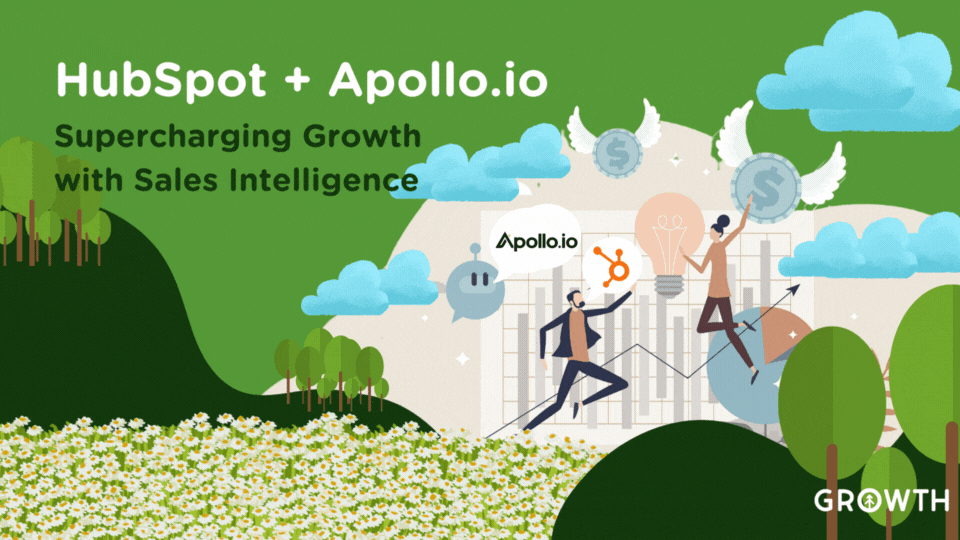 HubSpotMay 17, 2023
HubSpotMay 17, 2023 Growth Marketing Firm
Growth Marketing FirmHubSpot + Apollo.io: Supercharging Growth with Sales Intelligence
Efficient workflows and seamless communication between various data tools are more important now than ever...
-
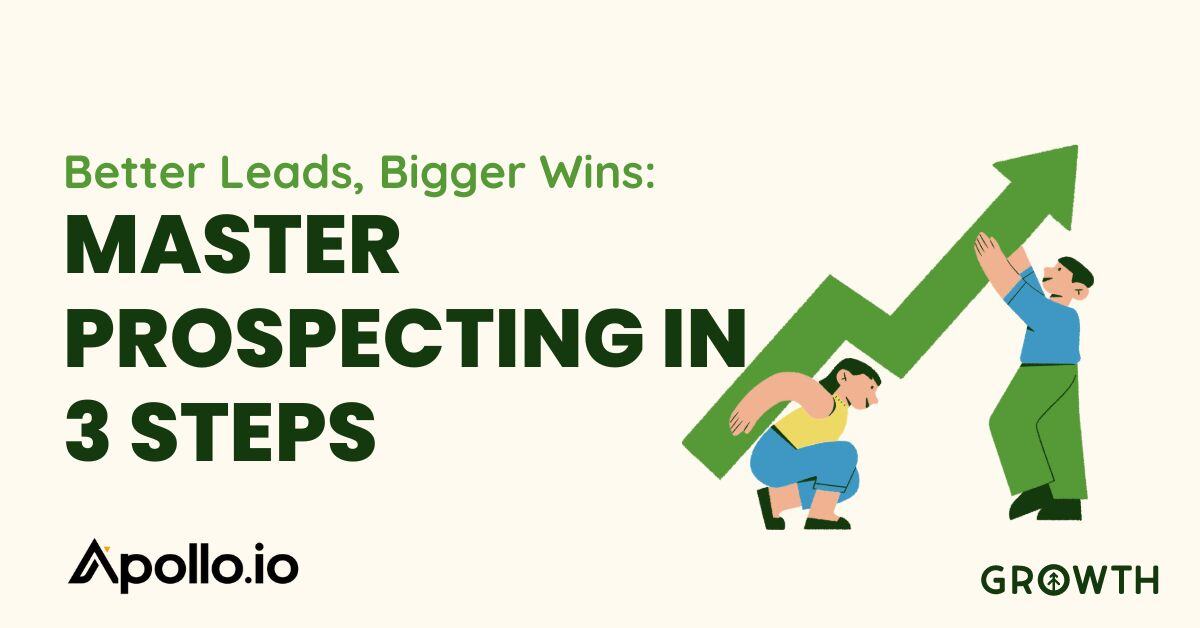 Marketing StrategyOct 10, 2024
Marketing StrategyOct 10, 2024 Jesse D'Agostino
Jesse D'AgostinoBetter Leads, Bigger Wins: Master Prospecting in 3 Steps with Apollo.io
With today’s pressure to grow the pipeline and book more meetings, it’s easy to fall back on a “spray and...
-
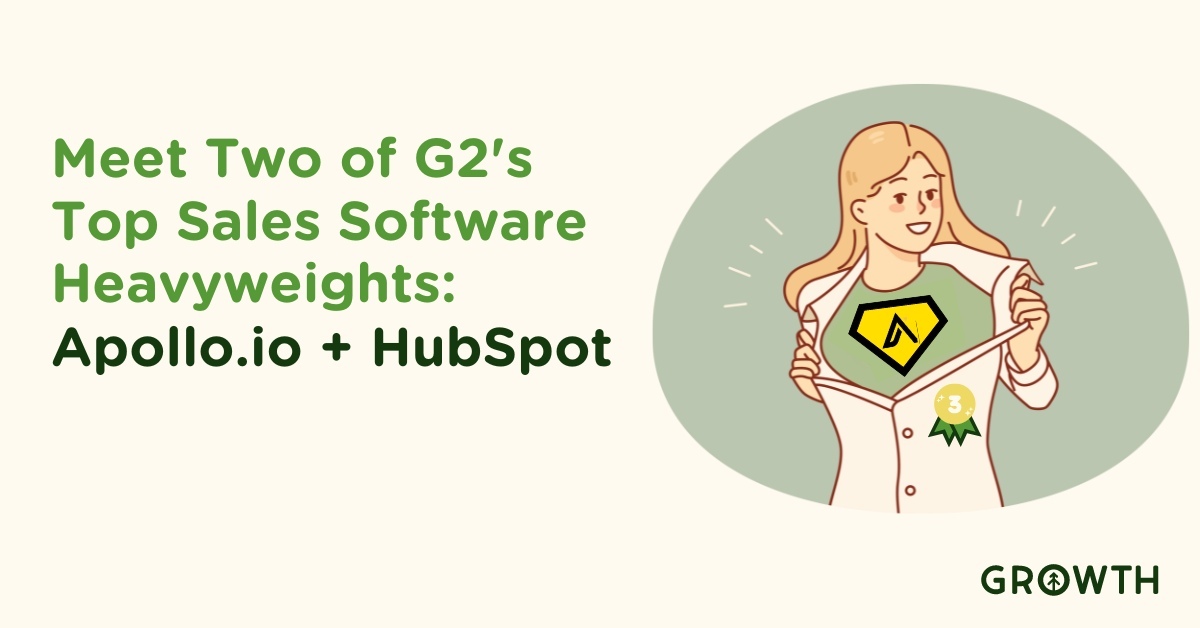 Sales EnablementFeb 12, 2024Rick Barcellos
Sales EnablementFeb 12, 2024Rick BarcellosMeet Two of G2's Top Sales Software Heavyweights: Apollo.io + HubSpot
In the ever-evolving landscape of sales technology, it's rare to find tools that not only meet but exceed...
-
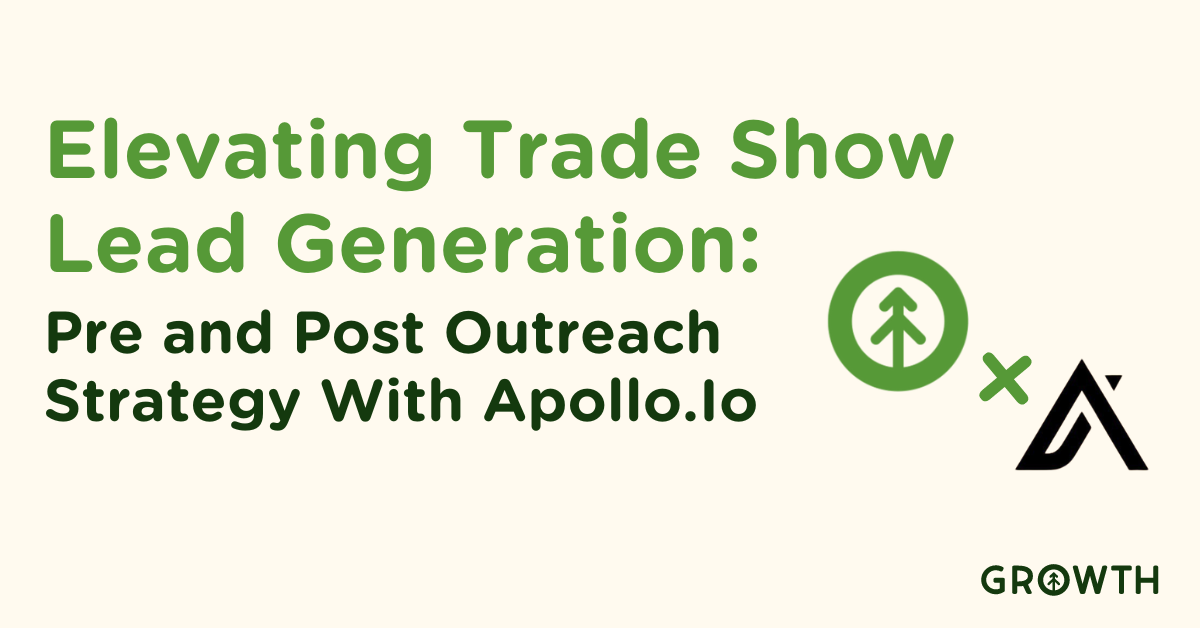 Sales EnablementApr 16, 2024Rick Barcellos
Sales EnablementApr 16, 2024Rick BarcellosElevating Trade Show Lead Generation: Pre and Post Outreach Strategy with Apollo.io
In the fast-evolving B2B landscape, in-person events and trade shows remain crucial for direct networking and...
-
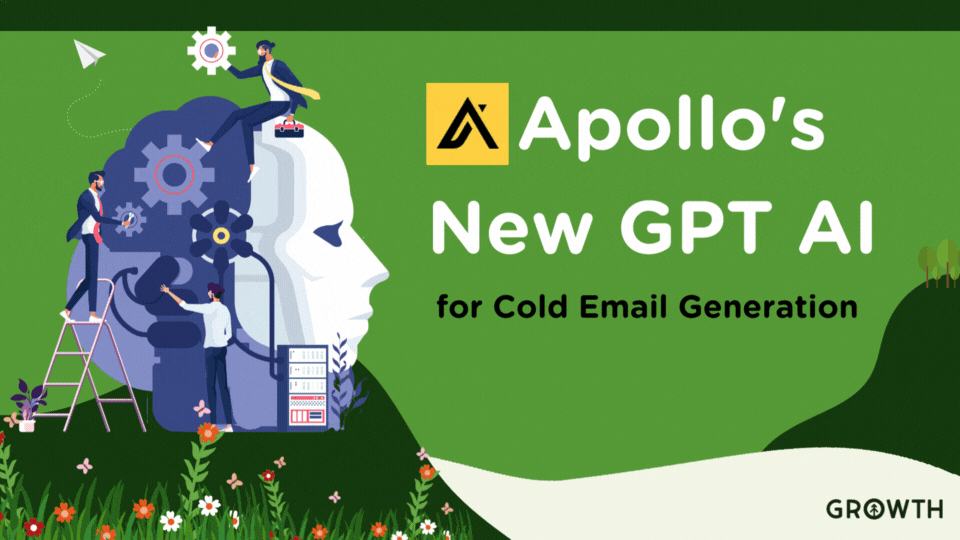 Tech StackJun 12, 2023
Tech StackJun 12, 2023 Growth Marketing Firm
Growth Marketing FirmApollo's New GPT AI for Cold Email Generation
Apollo.io, a sales engagement and intelligence platform, is a titan in the world of B2B sales and marketing.
-
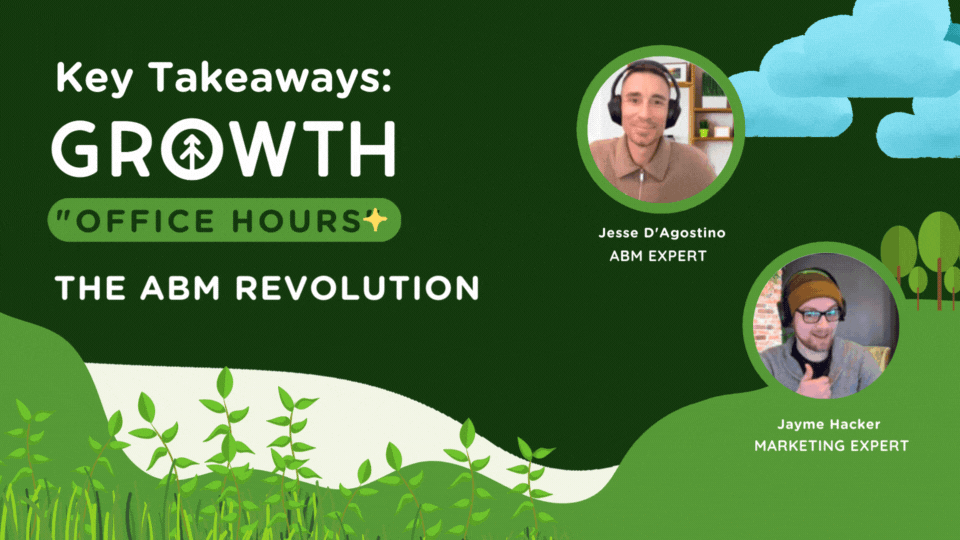 B2BMay 18, 2023
B2BMay 18, 2023 Growth Marketing Firm
Growth Marketing FirmKey Takeaways from Growth Office Hours: The ABM Revolution
Account-Based Marketing (ABM) has emerged as an essential strategy as business increasingly gravitates toward...
-
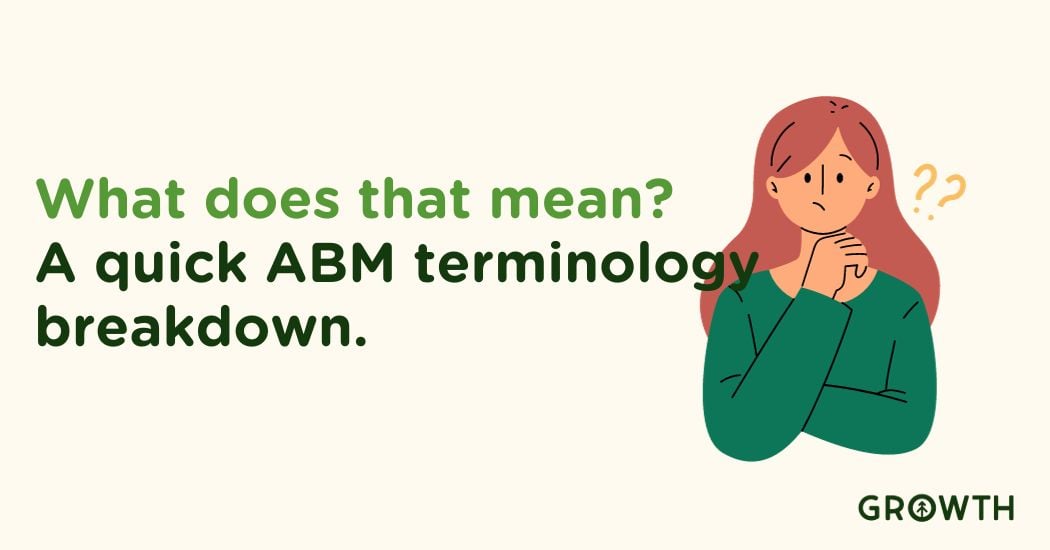 B2BDec 21, 2023
B2BDec 21, 2023 Growth Marketing Firm
Growth Marketing FirmThe most common service terms around ABM for new Growth customers
At Growth, we specialize in offering bespoke ABM services that harness the power of targeted communication...
-
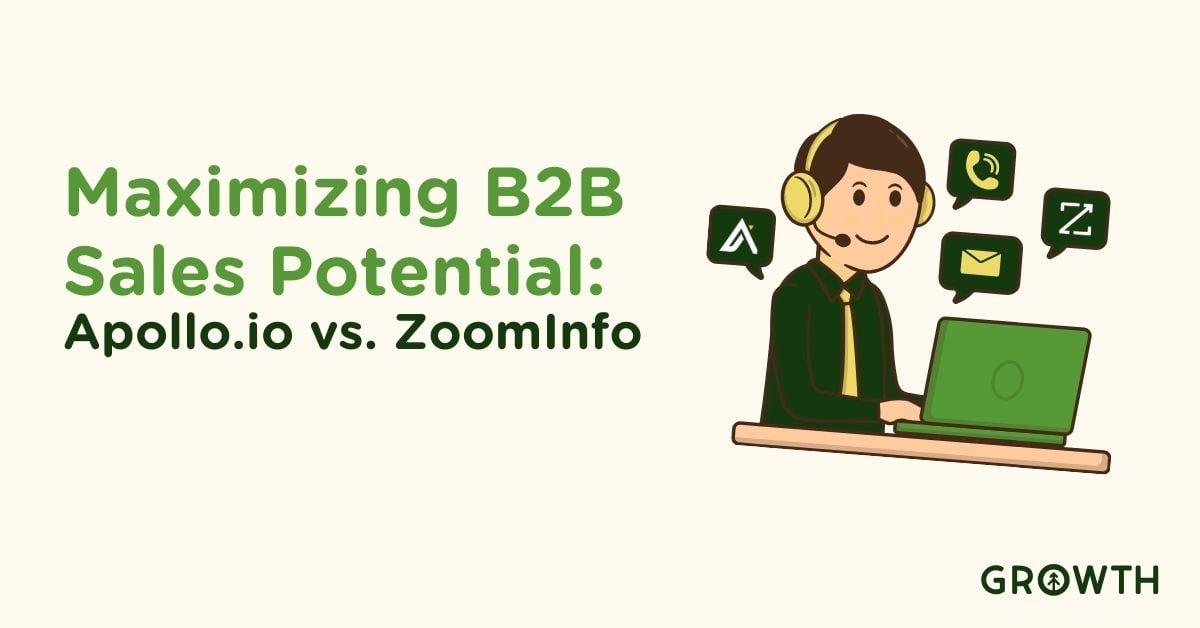 Sales EnablementFeb 15, 2024Rick Barcellos
Sales EnablementFeb 15, 2024Rick BarcellosMaximizing B2B Sales Potential: Apollo.io vs ZoomInfo
In the dynamic realm of B2B sales and marketing, the choice of data and sales execution tools can...
-
 HubSpotApr 8, 2024Rick Barcellos
HubSpotApr 8, 2024Rick BarcellosLeveraging HubSpot for Investment Firm Success
Investment firms face unique challenges in managing extensive portfolios and maintaining robust investor...


